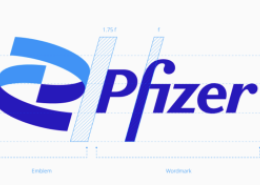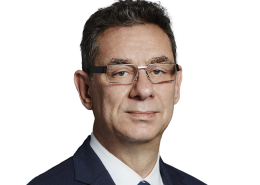Americans Believe Their Communities Are Ill-Prepared For Aging Population, New Survey Reveals; Survey Shows A Fear Of Getting Old Due To Health And Financial Concerns
Pfizer and Generations United Challenge People and Communities to Define How They Want to Get Old
(BUSINESS WIRE)--Nearly nine out of ten people who live in the U.S. believe they will live a long life, yet 40 percent believe being old is something to fear due to potential health and financial concerns, according to the second annual Get Old survey.
Despite rising rates of chronic disease estimated to affect nearly half (49%) the U.S. population by 2025, survey respondents expressed a surprising degree of comfort with the current state of their physical health, with 88% reported to be either “at ease,” “optimistic” or “proud” of their physical health.
While last year’s Get Old survey showed Americans are generally optimistic about the fact that more people are living longer, this year less than 30 percent of respondents across generations said they believe their community is very prepared to support an aging population.
With more than 10,000 people expected to turn 65 every day through 2030, this year’s Get Old survey underscores the need for society and individuals alike to reconsider how they want to Get Old.
“A lot of how we get old is up to us,” says Dr. Freda Lewis-Hall, Chief Medical Officer, Pfizer. “Taking action today to better your health improves your odds of enjoying a longer, more active and satisfying life. And now is the time to help our communities prepare to meet the needs of older people, for the benefit and enrichment of all.”
Chronic diseases are the leading cause of disability in the U.S. and many could be prevented or delayed through simple lifestyle changes. According to the World Health Organization, eliminating three risk factors – poor diet, inactivity and smoking – would prevent 80% of heart disease and stroke, 80% of type 2 diabetes, and 40% of cancers.
To encourage more people to take a more active role in their health at every age, Pfizer is working with advocacy group Generations United and others to ask Americans to consider: how do you want to Get Old? Participants can share their stories at a Pfizer-supported event in Times Square today and online at www.GetOld.com. Get Old is an initiative created by Pfizer a year ago to encourage productive conversation and actions around aging and living better.
Sixteen-year-old Jack Andraka, a scientist who invented a revolutionary new way of detecting pancreatic cancer as a high school freshman, and noted aging expert Jay Olshansky, 59 years old and a professor at the University of Illinois at Chicago School of Public Health, are among those who have already shared their stories of how they want to “Get Old.” “We exercise control over our lives every day,” says Professor Olshansky. “We smoke cigarettes, we become obese, we drink excessively, we expose ourselves to the sun. So the first lesson is to allow your body to live up to its genetic potential.” As someone still in his teens, Jack Andraka says he’s learned from his family that getting older opens up new opportunities: “Even when you get to 55, for example. My mom just picked up mountain biking. There are tons of new experiences as you get older.”
“Our communities should be places where we can grow up and grow old and where, no matter what our age, we feel connected and engaged,” says Donna Butts, Executive Director of Generations United, an advocacy organization focused on improving the lives of children, youth and older people through intergenerational strategies, programs and public policies. “Good communities, like lives well lived, don’t just happen. They require careful planning and nurturing. Let’s start thinking ahead to what we need to do to prepare for a healthy, older America.”
Key Survey Findings
The disconnect between how we act and how we aspire to age comes into focus as we begin to feel the effects of getting older.
While every generation surveyed, from Millennials (ages 18-32) to the Greatest Generation (ages 68+), expressed worry about getting older, these concerns are heightened beginning around age 40, when Americans begin to prioritize their physical health over wisdom and wealth.
Economic worries also weigh on people as they age. The greatest fear among Millennial and Boomer workers surveyed (61 percent overall) is not being able to find a new job should they lose their current one. On the flip side, Generation Xers and the Greatest Generation were more concerned about not being able to retire when they want to (57 percent overall).
Only 17% of those surveyed believe their communities are very prepared to provide home care-giving for the aging, and only 20% believe their communities are very prepared to provide healthcare facilities. Almost half of all survey respondents said that their cities are not prepared to address the transportation needs of older people.
A large majority (78%) of those surveyed believe that people who work past retirement age stay healthier longer and are happier, but almost 50 percent felt their city was ill-prepared to offer job opportunities to an aging workforce.
Additionally:
- While respondents agreed on what it takes to age well once they are indeed old – including sound financial arrangements and a last will and testament, they reported difficulty navigating these issues within their own families: nearly 40% reported being more uncomfortable asking their older parent to stop driving than discussing end of life issues.
- More than half of respondents said if they had the ability, they would go back in time to a younger age.
The 2013 Get Old survey was fielded by Harris Interactive and included 1,000 general population respondents in the U.S., ages 18+. The survey was conducted between March 25 and April 12, 2013 via telephone interviews.
About Pfizer Inc.
At Pfizer, we apply science and our global resources to bring therapies to people that extend and significantly improve their lives. We strive to set the standard for quality, safety and value in the discovery, development and manufacture of health care products. Our global portfolio includes medicines and vaccines as well as many of the world's best-known consumer health care products. Every day, Pfizer colleagues work across developed and emerging markets to advance wellness, prevention, treatments and cures that challenge the most feared diseases of our time. Consistent with our responsibility as one of the world's premier innovative biopharmaceutical companies, we collaborate with health care providers, governments and local communities to support and expand access to reliable, affordable health care around the world. For more than 150 years, Pfizer has worked to make a difference for all who rely on us. To learn more, please visit us at www.pfizer.com.
This press release has an accompanying Smart Marketing Page providing further details about the organization, products and services introduced above. You can access the Smart Marketing Page via the following link: https://smp.newshq.businesswire.com/pages/americans-believe-their-communities-are-ill-prepared-aging-population-new-survey-reveals.
Photos/Multimedia Gallery Available: http://www.businesswire.com/multimedia/home/20130605005659/en/
Pfizer Inc.
Media:
MacKay Jimeson, 212-733-2324








